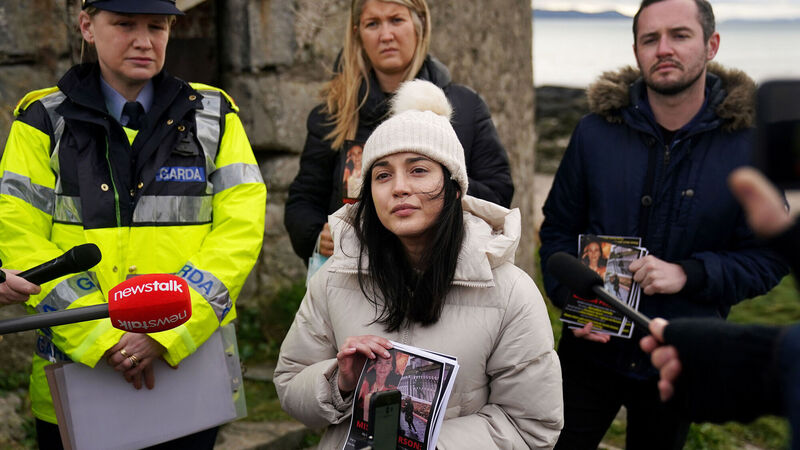Terry Prone: Stepping up to a challenge that could never have been anticipated

Jade Connolly, daughter of missing woman Bernadette Connolly, speaking to the media at the entrance to Donabate beach near the Shoreline Hotel in Dublin where Bernadette was last seen on January 7. Picture: Brian Lawless/PA
A homemade poster stuck to the window of the local SuperValu attracts my attention. It carries a photograph of a dark woman who is missing.















